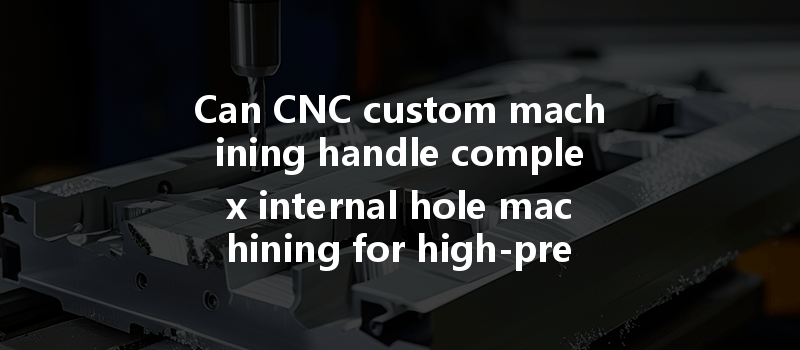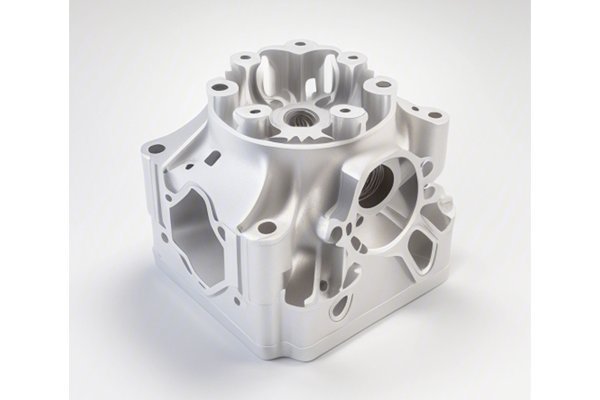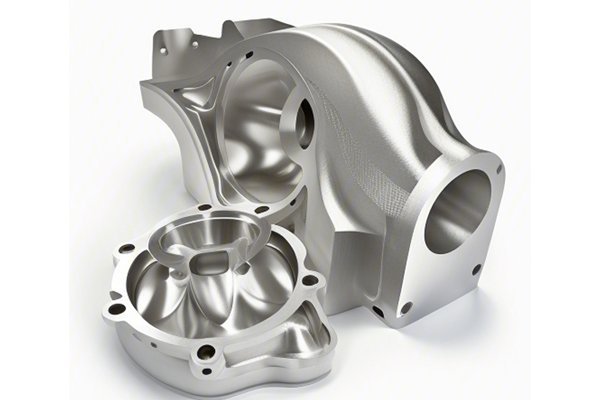*
Did you know that the global CNC machining market is expected to grow from approximately $63.5 billion in 2021 to $100.7 billion by 2028? This rapid expansion indicates a rising demand for sophisticated machining solutions, particularly in industries requiring high precision. This begs the question: can CNC custom machining handle complex internal hole machining for high-precision applications? The answer is a resounding yes, thanks to advancements in technology and tooling processes. In this blog, we will delve deep into the intricacies of CNC machining, its capabilities, and how it can effectively manage complex internal hole machining.
—
Understanding CNC Custom Machining
What is CNC Machining?
Computer Numerical Control (CNC) machining is a manufacturing process that uses computers to control machine tools. The process involves converting a CAD (Computer-Aided Design) file into a numerical code which the machine interprets to create intricate parts and products. CNC machines can perform various processes, including milling, turning, and drilling, allowing them to create highly complex components with exceptional accuracy.
Importance of Custom Machining
Custom machining is pivotal for industries like aerospace, automotive, and medical, where specifications can be unique and demanding. By utilizing CNC technology, manufacturers can achieve the precise dimensions and tolerances required for complex internal hole machining, ensuring the final product meets stringent quality standards.
The Capabilities of CNC Machines
One of the key benefits of CNC custom machining is its ability to produce parts with remarkable accuracy. CNC machines are designed to follow programmed instructions closely, allowing for tolerances as tight as +/
Modern CNC machines are equipped with advanced tooling and software capabilities that enable them to create intricate geometries. This means they can efficiently drill, bore, or mill complex internal shapes, accommodating the unique requirements of a wide array of applications.
CNC machining can work with a variety of materials, from metals to plastics. This versatility makes it indispensable in sectors requiring different materials with unique machinability behaviors. High-strength alloys, for instance, can be expertly machined to feature complex internal holes for aerospace components.
Techniques for Complex Internal Hole Machining
To effectively handle complex internal hole machining, it is crucial to utilize the correct tooling. Boring tools, reamers, and specialized drill bits can be employed to achieve specific hole configurations. Additionally, multi-axis CNC machines provide enhanced flexibility for accessing hard-to-reach areas and creating intricate internal features.
Machining complex internal profiles can generate excess heat, which could compromise the integrity of the workpiece or the tool. Implementing effective cooling and lubrication techniques can significantly reduce the risk of deformation and tool wear, ensuring the machining operation runs smoothly.

Adaptive machining utilizes real-time monitoring and adjustments based on feedback from the process. Implementing such techniques allows manufacturers to manage potential deviations in internal hole dimensions dynamically, ensuring that precise specifications are consistently met.
Challenges in Complex Internal Hole Machining
Tool wear is a significant challenge in CNC machining, especially when dealing with complex internal holes. Abrasive materials can diminish the effectiveness of standard tools. Manufacturers often require innovative tool materials, coatings, and geometries designed to withstand the conditions presented by hard metals and intricate internal shapes.
The programming involved in complex CNC machining can be demanding. Skills in CAD and CAM (Computer-Aided Manufacturing) software are essential for creating detailed paths that machines can follow. A lack of expertise can lead to errors that impact overall quality.
While CNC machining can be efficient, the production time required for complex internal holes is still higher than simpler machining tasks. Manufacturers must find a balance between complexity and time to ensure timely delivery and cost-efficiency.
Solutions for Efficient Complex Internal Hole Machining
Simulation software can model the machining process before the actual operation begins. This allows for identifying potential issues and refining tool paths, reducing the risk of errors during production.
Investing in the workforce’s training can lead to significant improvements in the quality of CNC machining. Employees proficient in software applications and machine operations can optimize the machining processes and tackle specific challenges effectively.
Choosing the right tools for particular jobs can ultimately enhance machining efficiency and decrease the likelihood of errors. Tools that are specially designed for internal machining can make a considerable difference in final output quality.
CNC custom machining is a remarkable technology that provides solutions for various high-precision applications, including complex internal hole machining. By leveraging advanced tooling, adaptive techniques, and ongoing workforce training, manufacturers can navigate the challenges of this intricate process successfully. The evolution of CNC machining stands as a testament to the industry’s commitment to precision and efficiency. As we look to the future, the importance of understanding and employing these technologies cannot be overstated; businesses that adapt will thrive amid increasing demands for complexity and quality in manufacturing.
In summary, investing in CNC custom machining not only streamlines the manufacturing process but also ensures the production of bespoke components that meet the exact specifications necessary in diverse applications. For those in industries where precision is paramount, embracing CNC custom machining could be the key to staying ahead of the competition. So, consider the possibilities and challenges of CNC machining, and recognize its significance in achieving sophisticated manufacturing goals.
Related Posts
- Which Material Reigns Supreme: 6061 Aluminum vs. PA Nylon in CNC Machining Wear Resistance?
- How can CNC custom machining plants provide quick feedback based on customer designs to improve efficiency?
- What is the difference between polyamide and nylon in CNC machining, and how does it affect material selection?






